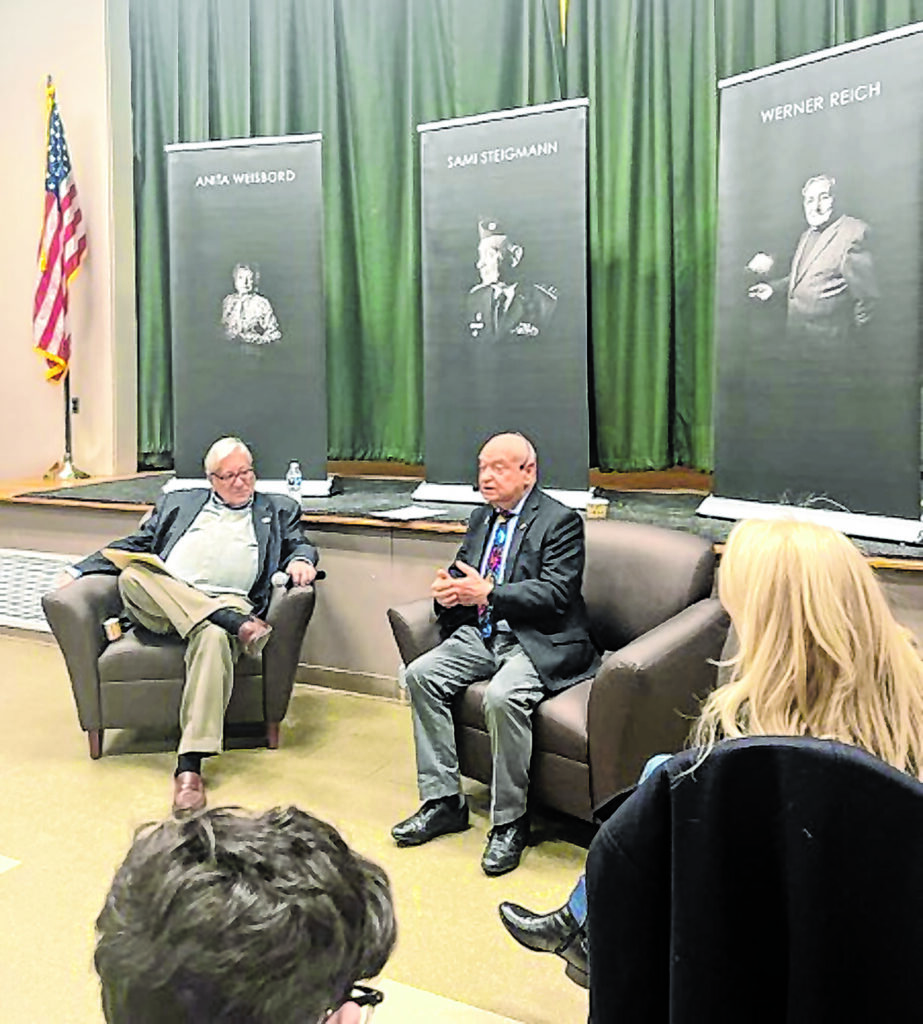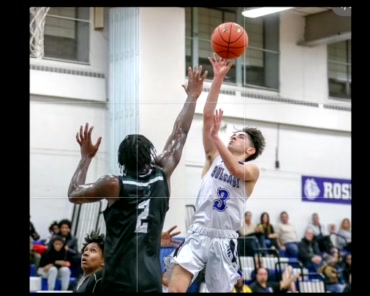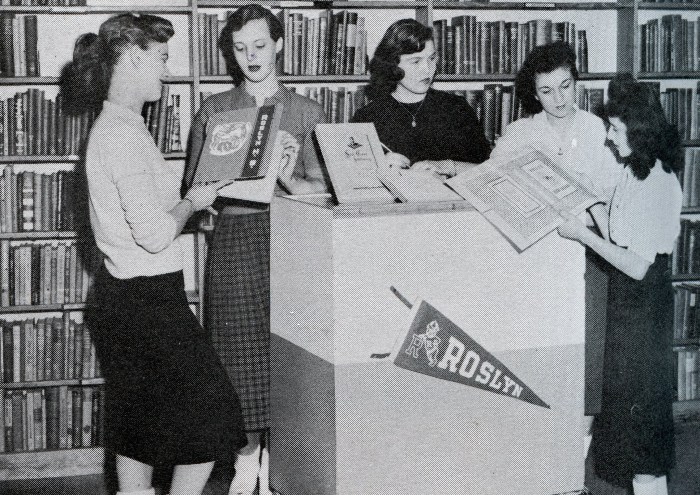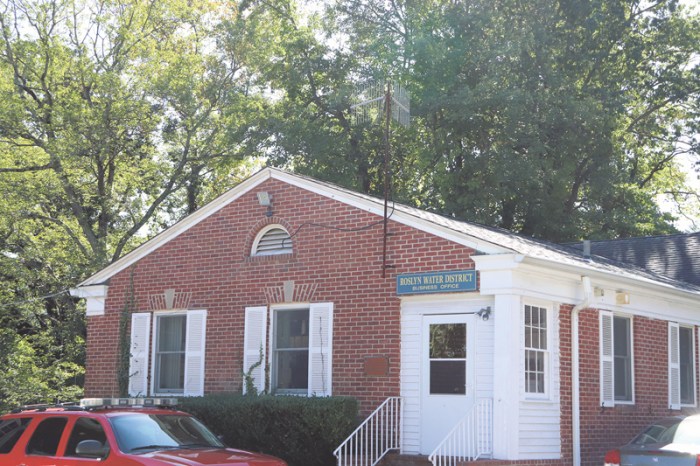Legendary World War II Holocaust survivor Sami Steigmann took his healing message of hope an tolerance to East Hills last March 25, speaking before an overflow crowd of more than 200 people. The event was sponsored by the East Hills Social Committee.
Everywhere Steigmann travels, his audience is overwhelmed by his presence and his courage. East Hills was no different.
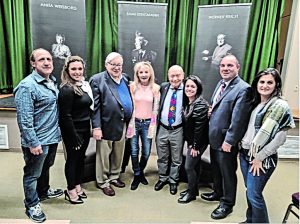
The audience was moved and inspired as Steigmann shared his story. Steigmann urged a greater response to antisemitism through more concerted efforts in the press. He also held out hope that by talking to children, the message of tolerance and acceptance can be achieved.
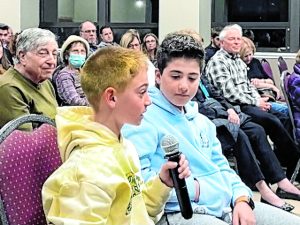
“Remembering the horrors the Nazis inflicted and the scourge of the past is critical,” said East Hills Mayor Micheal R. Koblenz, who also moderated the event. “I thank Sami for informing us, vividly, of hatred that existed, but lending us hope that through our younger generations of children we can flourish.”
Steigmann’s life story makes his message of hope even more palatable. He doesn’t just make appeals. His life is a witness to hope.
The Holocaust and Human Rights Education Center provides a brief biography.
“Sami’s life story is remarkable. He was born on December 21, 1939 in Czernovitz, Bukovina, part of the Austro-Hungarian Empire belonging to Romania. Later, it became part of former Soviet Union and today it is in Ukraine. From 1941 through 1944, he was with his parents in the Ukraine at Mogilev-Podolsky, a labor camp in an area called Transnistria. The camp was liberated by the Red Army and his family was deported by the Romanians, not by the Germans. He grew up in Transylvania, in a small town called Reghin. He did not know the language. In 1961, the whole family (his sister was born in 1946) emigrated to Israel. He served in the Israeli Air Force, not as a pilot. In 1968, without knowing the language and no money, alone, Sami came to the United States. He lived in Milwaukee, Wisconsin where he married, divorced and eventually, in 1983 returned to Israel. However, in 1988, he returned to the United States, choosing New York City as his final home.
“Being too young to work, per his parents, Sami was subjected to Nazi medical experimentation in his early years but has no recollection of those years. However, he has felt and still feels the side effects every single day of his life.
“After the medical experiments, life was very difficult in the camp. The starvation and the bitter cold Russian winter created survival problems. Struggling to take care of his family, Sami’s father gave away his winter coat for a loaf of bread. At one point he was dying of starvation and his life was saved by a German woman. This German woman lived on a farm near the camp and brought food to the SS and Ukrainian guards. Fortunately, she saw Sami and recognized he was dying of starvation – physical signs are big head, swollen stomach, swollen feet. She decided to give him milk, risking her entire family’s lives. Eventually, when color began to return to his cheeks, she would pinch him (in Yiddish, we called it a knip), and say: “Those are my rosy cheeks”. This German woman enabled Sami to survive and eventually, the whole family returned to Romania. Not knowing her name, years later, it was a very happy sight to see at the Garden of the Righteous Among the Nations at Yad Va’Shem a stone/marker and a tree honoring the unknown ones.”
Steigmann is not the retiring type. According to his website, he proudly carries the torch for his generation and teaches young people life lessons based on his personal experiences. Steigmann overcame life challenges and obstacles by volunteering, finding healthy substitutes to fulfill his need to teach and share.
On Feb. 17, 2016, Sami was recognized for his life’s work when he received the Harmony Power Award at the Museum of Tolerance on East 42nd St. in Manhattan. That same night he also received a proclamation from the New York State Assembly recognizing him as an example of courage, compassion and for his work speaking with students and visitors to New York.
Steigmann’s work extends into charity. Along with fellow members of his New York congregation, Steigmann’s friends have established The Reghina, Nathan, and Sami Steigmann Family Peace and Tolerance Education Fund. The Fund enables the man to share his life experience with audiences all over the world.
All the money donated will go directly to the tax-deductible Foundation: https://tamidnyc.org/sami/ to provide scholarships to upstanding students, honor his parents, remember the Holocaust victims, and recognize the survivors.
The event was planned by The East Hills Social Committee. The Co-Chairs are Fanny Boneh, Lindsay Giloni, and Rachel Tubian. The Supervising Trustee is Clara Pomerantz.



